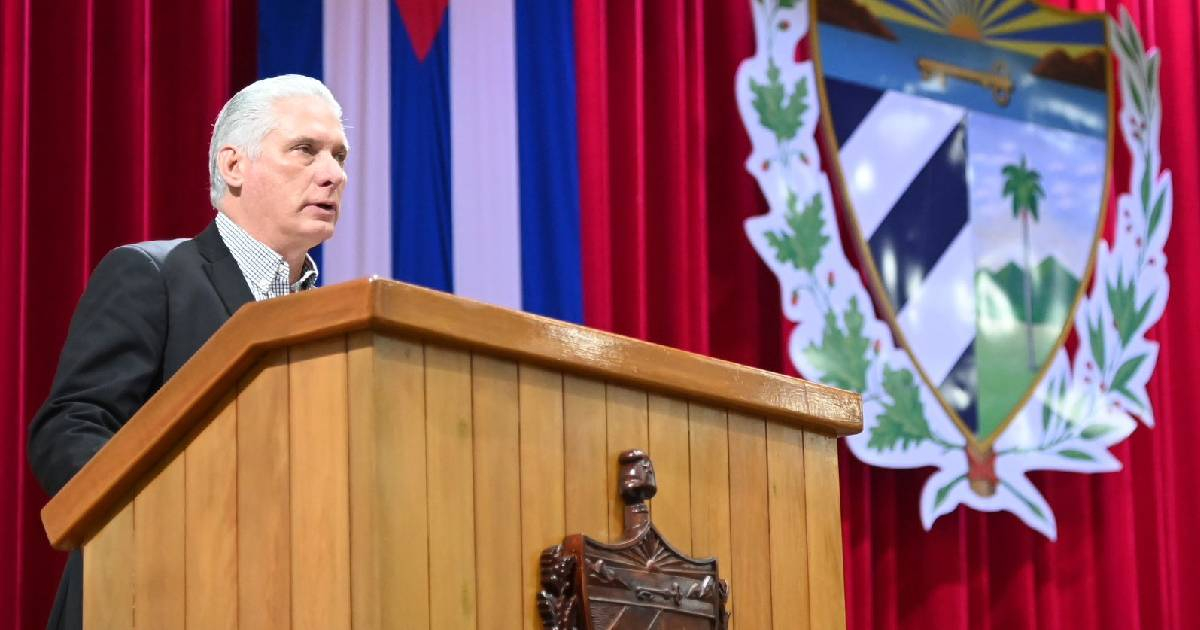Cuban President Miguel Díaz-Canel Bermúdez confirmed on Friday the rise in violence, crime, and addictions in the country, attributing it to what he described as an "adverse socioeconomic scenario." During the closing speech of the third session of the National Assembly's tenth legislature, Díaz-Canel highlighted that the ongoing efforts of the Ministry of the Interior (Minint) and justice bodies, in close collaboration with the public, have enabled the detection, prevention, and confrontation of various criminal trends and types over the past few years.
He attributed these achievements to a stricter approach in the legal, penal, and prison systems, particularly in cases involving individuals accused, charged, or convicted of crimes with high social harm. However, despite these "efforts," he acknowledged that "the situation involving crime, corruption, illegal activities, and social indiscipline remains complex, marked by the adverse socioeconomic environment."
Government's Approach and Proposed Solutions
As a solution, Díaz-Canel urged relentless action against these issues and called for the promotion of the best, most honest, and most dignified civic behaviors. He also stressed the importance of strengthening educational efforts within families, schools, institutions, and society at large. However, he did not offer specific solutions or address the high levels of impunity reported by victims of violence on the island.
"Zero tolerance for the indifferent, the thieves, and the slackers. If the laws need to be harsher, it is up to this Assembly to legislate accordingly," he asserted. Concluding his speech, Díaz-Canel declared that Cuba "will not be defeated by crime."
In recent months, the Cuban regime has had to acknowledge a rise in criminal activity and drug-related offenses in Cuba. Increasingly younger individuals are beginning to use substances like "chemicals," a cheap drug with severe health consequences. The Cuban government does not publish figures on those affected by or deaths related to drugs and crime.
Understanding the Rise in Violence and Crime in Cuba
This section aims to address frequently asked questions regarding the recent increase in violence, crime, and drug addiction in Cuba, as confirmed by President Miguel Díaz-Canel.
What did President Díaz-Canel attribute the rise in violence and crime to?
President Díaz-Canel attributed the increase in violence, crime, and addictions to an "adverse socioeconomic scenario."
What measures did Díaz-Canel propose to combat these issues?
Díaz-Canel proposed relentless action against crime and the promotion of honest and dignified civic behaviors. He also emphasized the need for stronger educational efforts within families, schools, institutions, and society.
Has the Cuban government published data on drug-related issues and crime?
No, the Cuban government has not published figures on those affected by or deaths related to drugs and crime.
